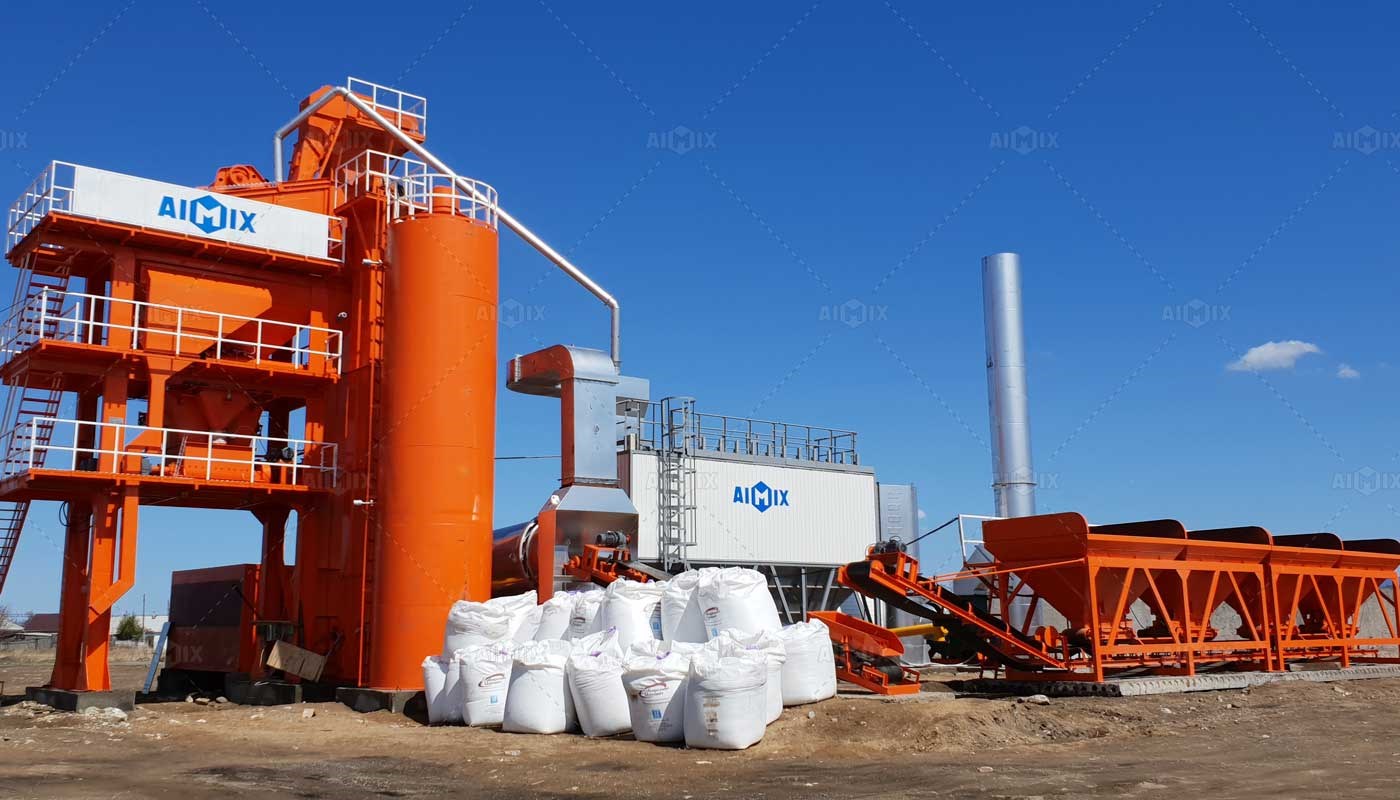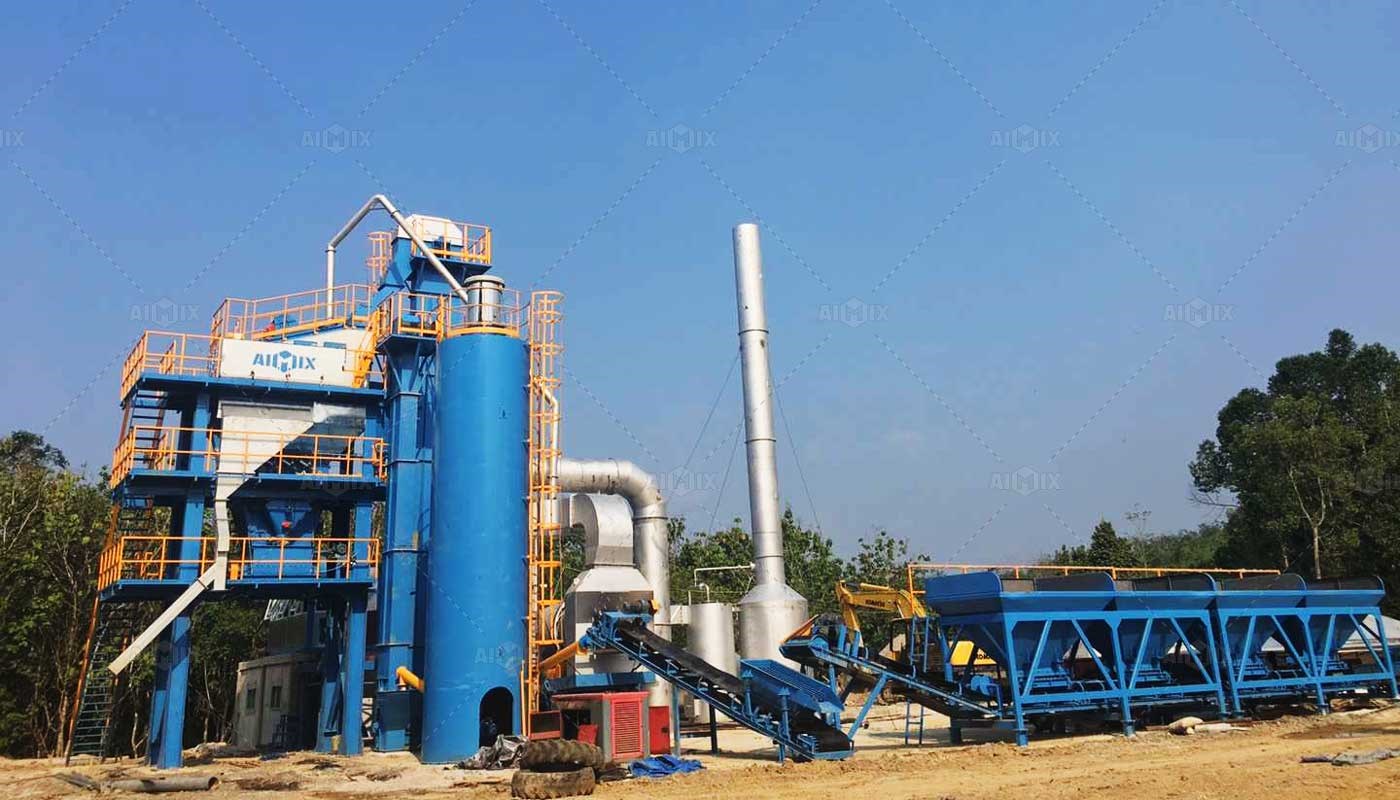29
0
0
A Comprehensive Look at the Industry Development of Asphalt Production
1
China
0
Asphalt production is a crucial sector within the construction industry, providing the materials necessary for building and maintaining our roads, highways, and infrastructure. Over the years, the industry has undergone significant development, driven by advancements in technology, sustainability initiatives, and evolving market demands. This article aims to provide a comprehensive look at the industry development of asphalt production, tracing its evolution, exploring key trends, and highlighting future prospects.
Evolution of Asphalt Production
The industry's development of asphalt production can be traced back several decades. Early methods involved heating and mixing asphalt with aggregates manually. However, with technological advances, mechanized processes were introduced, improving efficiency and paving the way for larger-scale production. The advent of hot mix asphalt (HMA) revolutionized the industry, enabling the production of high-quality asphalt in controlled environments.
Technological Advances
Technological innovations have played a pivotal role in the industry's development of asphalt production. Key advancements include:
Batch Plants to Continuous Mixing Systems
Traditional batch plants produced asphalt in discrete batches, leading to interruptions and longer production cycles. The introduction of continuous mixing systems allowed for a seamless and uninterrupted flow of asphalt production. These systems minimize downtime, increase productivity, and ensure consistent quality.

Automation and Control Systems
The integration of automation and control systems has significantly enhanced the efficiency and precision of asphalt production. Advanced systems monitor and regulate various parameters such as temperature, moisture content, and mix proportions, ensuring consistent quality and reducing human error.
Recycling Technologies
In recent years, the industry has embraced recycling technologies to maximize resource utilization and sustainability. Reclaimed asphalt pavement (RAP) and reclaimed asphalt shingles (RAS) are recycled and reintegrated into new asphalt mixtures. These recycling efforts reduce waste, conserve resources, and contribute to a more sustainable production process.
Sustainability Initiatives
The industry's development of asphalt production has been influenced by growing environmental concerns and sustainability initiatives. Efforts to reduce greenhouse gas emissions, energy consumption, and waste generation have led to the adoption of various sustainable practices:
Warm Mix Asphalt (WMA)
Warm mix asphalt technology allows for lower production temperatures compared to traditional hot mix asphalt (HMA). This technique reduces energy consumption, lowers emissions, and provides a safer working environment for workers exposed to high temperatures.

Use of Recycled Materials
The incorporation of recycled materials, such as RAP and RAS, promotes resource conservation and reduces the demand for virgin materials. By reusing materials that would otherwise go to landfills, the industry contributes to a circular economy and minimizes environmental impact.
Life Cycle Assessments
Life cycle assessments (LCAs) have become increasingly important in evaluating the environmental impact of asphalt production. LCAs consider the entire life cycle of asphalt, from material extraction to disposal, enabling informed decision-making and the implementation of sustainable practices.
Future Prospects
The industry's development of asphalt production continues to evolve, with several future prospects on the horizon:
Advancements in Sustainable Technologies
Ongoing research and development efforts aim to further improve the sustainability of asphalt production. Innovations in warm mix asphalt technologies, enhanced recycling processes, and the integration of renewable energy sources hold promise for reducing the industry's environmental footprint.
Digitalization and Industry 4.0
The implementation of digital technologies, automation, and data-driven processes are poised to transform the industry. Real-time monitoring, predictive maintenance, and intelligent systems will enhance efficiency, optimize production, and improve quality control.
Alternative Binders and Mix Designs
Exploration of alternative binders and mix designs is ongoing, seeking to enhance performance, durability, and resilience of asphalt pavements. Innovations such as polymer-modified binders and stone mastic asphalt offer potential for improved performance in challenging conditions.
The industry development of asphalt production has witnessed remarkable progress driven by technological advancements and sustainability initiatives. From manual labor to automated processes, batch plants to continuous mixing systems, and embracing recycling technologies, the industry continues to evolve and adapt to changing market demands. With a growing focus on sustainability, future prospects include further advancements in sustainable technologies, digitalisation, and the exploration of alternative binders and mix designs. As the industry moves forward, it holds the potential to provide efficient, high-quality, and environmentally-conscious solutions for our infrastructure needs.
Evolution of Asphalt Production
The industry's development of asphalt production can be traced back several decades. Early methods involved heating and mixing asphalt with aggregates manually. However, with technological advances, mechanized processes were introduced, improving efficiency and paving the way for larger-scale production. The advent of hot mix asphalt (HMA) revolutionized the industry, enabling the production of high-quality asphalt in controlled environments.
Technological Advances
Technological innovations have played a pivotal role in the industry's development of asphalt production. Key advancements include:
Batch Plants to Continuous Mixing Systems
Traditional batch plants produced asphalt in discrete batches, leading to interruptions and longer production cycles. The introduction of continuous mixing systems allowed for a seamless and uninterrupted flow of asphalt production. These systems minimize downtime, increase productivity, and ensure consistent quality.

Automation and Control Systems
The integration of automation and control systems has significantly enhanced the efficiency and precision of asphalt production. Advanced systems monitor and regulate various parameters such as temperature, moisture content, and mix proportions, ensuring consistent quality and reducing human error.
Recycling Technologies
In recent years, the industry has embraced recycling technologies to maximize resource utilization and sustainability. Reclaimed asphalt pavement (RAP) and reclaimed asphalt shingles (RAS) are recycled and reintegrated into new asphalt mixtures. These recycling efforts reduce waste, conserve resources, and contribute to a more sustainable production process.
Sustainability Initiatives
The industry's development of asphalt production has been influenced by growing environmental concerns and sustainability initiatives. Efforts to reduce greenhouse gas emissions, energy consumption, and waste generation have led to the adoption of various sustainable practices:
Warm Mix Asphalt (WMA)
Warm mix asphalt technology allows for lower production temperatures compared to traditional hot mix asphalt (HMA). This technique reduces energy consumption, lowers emissions, and provides a safer working environment for workers exposed to high temperatures.

Use of Recycled Materials
The incorporation of recycled materials, such as RAP and RAS, promotes resource conservation and reduces the demand for virgin materials. By reusing materials that would otherwise go to landfills, the industry contributes to a circular economy and minimizes environmental impact.
Life Cycle Assessments
Life cycle assessments (LCAs) have become increasingly important in evaluating the environmental impact of asphalt production. LCAs consider the entire life cycle of asphalt, from material extraction to disposal, enabling informed decision-making and the implementation of sustainable practices.
Future Prospects
The industry's development of asphalt production continues to evolve, with several future prospects on the horizon:
Advancements in Sustainable Technologies
Ongoing research and development efforts aim to further improve the sustainability of asphalt production. Innovations in warm mix asphalt technologies, enhanced recycling processes, and the integration of renewable energy sources hold promise for reducing the industry's environmental footprint.
Digitalization and Industry 4.0
The implementation of digital technologies, automation, and data-driven processes are poised to transform the industry. Real-time monitoring, predictive maintenance, and intelligent systems will enhance efficiency, optimize production, and improve quality control.
Alternative Binders and Mix Designs
Exploration of alternative binders and mix designs is ongoing, seeking to enhance performance, durability, and resilience of asphalt pavements. Innovations such as polymer-modified binders and stone mastic asphalt offer potential for improved performance in challenging conditions.
The industry development of asphalt production has witnessed remarkable progress driven by technological advancements and sustainability initiatives. From manual labor to automated processes, batch plants to continuous mixing systems, and embracing recycling technologies, the industry continues to evolve and adapt to changing market demands. With a growing focus on sustainability, future prospects include further advancements in sustainable technologies, digitalisation, and the exploration of alternative binders and mix designs. As the industry moves forward, it holds the potential to provide efficient, high-quality, and environmentally-conscious solutions for our infrastructure needs.
Signatur